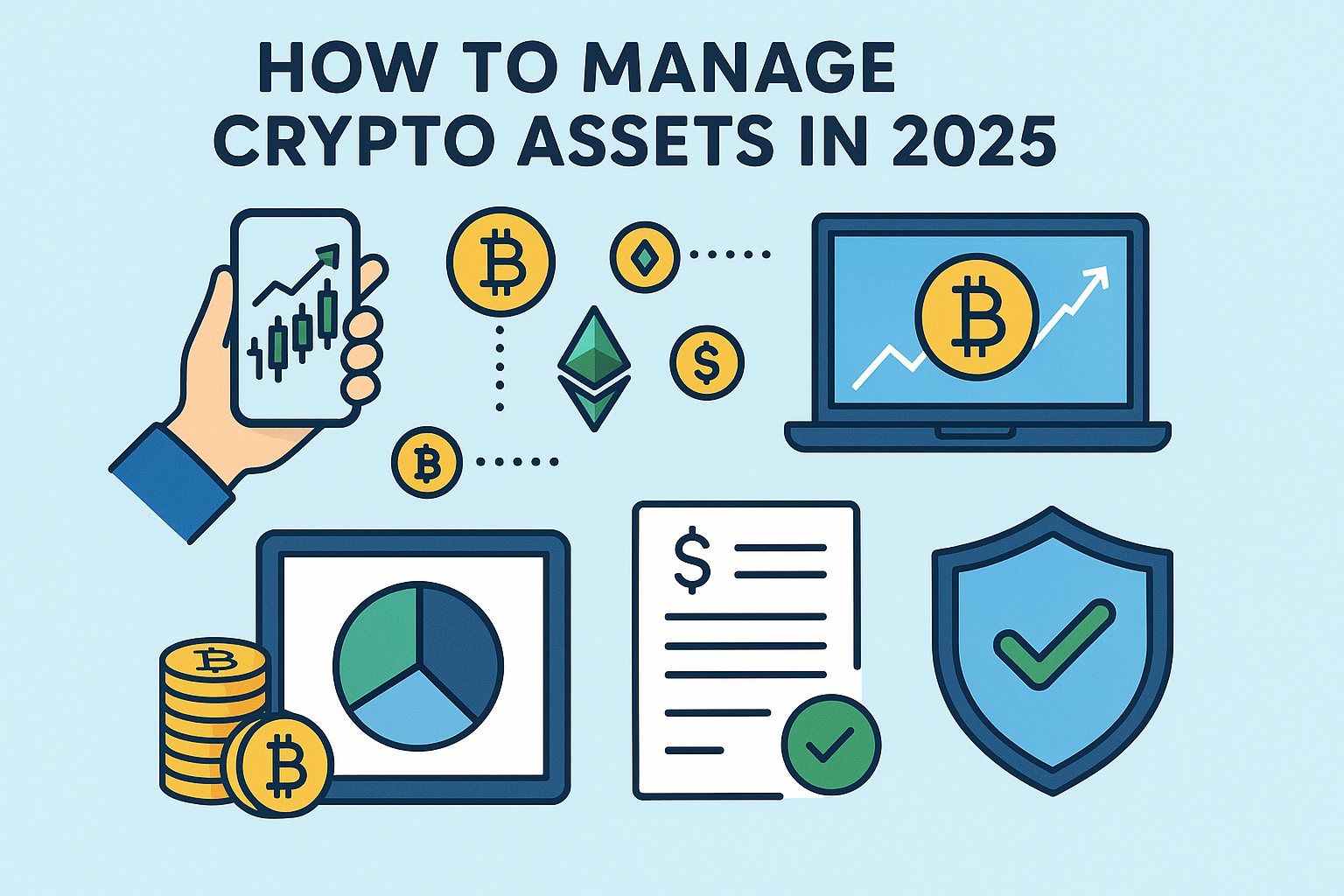How Bahrain’s Regulation Could Shape Crypto in the Middle East
How Bahrain's progressive Could Shape Crypto regulation is transforming Middle East digital finance. Learn about regulatory frameworks....

The Middle East is experiencing a digital transformation unlike any seen before, and at the heart of this revolution stands the Kingdom of Bahrain. As traditional financial powerhouses grapple with the complexities of crypto regulation, Bahrain has emerged as a pioneering force, crafting comprehensive frameworks that could very well define the future of digital assets across the entire region.
Bahrain’s approach to crypto regulation represents more than just policy-making; it embodies a strategic vision that balances innovation with security, growth with compliance. The kingdom’s Central Bank of Bahrain (CBB) has taken unprecedented steps to create a regulatory environment that not only welcomes blockchain technology but actively nurtures its development. This forward-thinking stance has positioned Bahrain as a potential blueprint for other Middle Eastern nations seeking to harness the power of cryptocurrency while maintaining financial stability.
The significance of Bahrain’s regulatory framework extends far beyond its borders. As the Middle East crypto market continues to expand, with regional trading volumes reaching unprecedented levels, the need for clear, comprehensive regulation has become paramount. Bahrain’s model offers a sophisticated solution that addresses regulators’ concerns while providing the clarity and confidence that crypto businesses need to thrive.
What makes Bahrain’s approach particularly compelling is its recognition that digital currencies are not merely a technological novelty but a fundamental shift in how financial services operate. By establishing clear guidelines for crypto exchanges, initial coin offerings (ICOs), and digital payment systems, Bahrain has created an ecosystem where innovation can flourish under proper oversight. This balance between regulation and freedom has garnered international attention, positioning the kingdom as a regional leader in fintech innovation.
The Foundation of Bahrain’s Crypto Regulatory Framework
Central Bank of Bahrain’s Vision
The Central Bank of Bahrain has demonstrated remarkable foresight in developing its cryptocurrency regulations. Unlike many global regulators who have approached digital assets with scepticism, the CBB has embraced a philosophy of “regulate to facilitate.” This approach recognises that blockchain technology and digital assets represent an inevitable evolution in financial services rather than temporary disruptions.
The CBB’s regulatory framework is built on four key pillars: consumer protection, market integrity, anti-money laundering compliance, and facilitating innovation. These principles work in harmony to create an environment where crypto companies can operate with confidence while ensuring that traditional financial stability concerns are adequately addressed.
One of the most significant aspects of Bahrain’s approach is its tiered licensing system. This system recognises that different cryptocurrency activities carry varying levels of risk and complexity. By creating distinct categories for crypto asset services, the CBB has enabled both established financial institutions and innovative startups to find appropriate regulatory pathways for their specific business models.
Regulatory Sandboxes and Innovation Hubs
Bahrain’s regulatory sandbox has become a cornerstone of its crypto regulation strategy. This controlled environment allows fintech companies and blockchain startups to test innovative solutions without immediately facing the full weight of traditional regulatory requirements. The sandbox approach has proven particularly effective for cryptocurrency ventures, where rapid technological development often outpaces conventional regulatory frameworks.
The success of Bahrain’s regulatory sandbox can be measured not just in the number of companies it has attracted, but in the quality of innovations it has fostered. Digital payment platforms, decentralised finance (DeFi) applications, and cryptocurrency trading solutions have all found fertile ground within this protective regulatory environment.
Key Regulatory Components Shaping the Industry
Licensing Requirements for Crypto Businesses
Bahrain’s crypto licensing framework is comprehensive yet accessible, addressing the full spectrum of digital asset services. The CBB has established clear criteria for crypto exchange licensing, digital wallet providers, and cryptocurrency custody services. These requirements focus on operational resilience, cybersecurity measures, and compliance capabilities rather than creating unnecessary barriers to entry.

The licensing process itself reflects Bahrain’s commitment to supporting crypto innovation. Rather than imposing one-size-fits-all requirements, the CBB has developed flexible standards that scale with the size and complexity of different cryptocurrency operations. This nuanced approach has made Bahrain particularly attractive to both international crypto exchanges seeking regional expansion and local entrepreneurs developing blockchain solutions.
Anti-Money Laundering and Compliance Standards
AML compliance in Bahrain’s crypto sector represents a sophisticated balance between thorough oversight and operational efficiency. The CBB has implemented Know Your Customer (KYC) requirements that align with international standards while recognising the unique characteristics of digital currency transactions.
The kingdom’s approach to crypto compliance extends beyond traditional banking regulations to address the specific risks associated with peer-to-peer trading, crypto mining, and cross-border digital payments. These measures have created a robust framework that satisfies international regulatory bodies while maintaining the efficiency that makes cryptocurrency attractive to users.
Impact on Regional Crypto Adoption
Attracting International Crypto Companies
Bahrain’s regulatory clarity has become a powerful magnet for international crypto businesses seeking a stable, well-regulated environment for their Middle Eastern operations. Major cryptocurrency exchanges, blockchain development companies, and digital asset management firms have established regional headquarters in Bahrain, drawn by the combination of regulatory certainty and business-friendly policies.
This influx of international expertise has created a virtuous cycle, where the presence of established crypto companies attracts additional investment and talent to the kingdom. The result is an increasingly sophisticated crypto ecosystem that serves as a hub for Middle East digital finance activities.
Fostering Local Innovation
Beyond attracting international companies, Bahrain’s crypto regulations have played a crucial role in nurturing local fintech innovation. Local entrepreneurs and developers have found in Bahrain’s regulatory framework the confidence and clarity needed to pursue ambitious blockchain projects and cryptocurrency ventures.
The kingdom’s emphasis on education and training has also contributed to the development of local capacity. Universities and training institutions have developed curricula in blockchain and cryptocurrency that prepare local talent for careers in the expanding digital asset sector.
Comparison with Other Middle Eastern Jurisdictions
UAE’s Competitive Landscape
While the United Arab Emirates has also made significant strides in crypto regulation, Bahrain’s approach offers distinct advantages. The CBB’s more centralised regulatory structure contrasts with the UAE’s multiple regulatory authorities, potentially offering greater consistency and clarity for crypto businesses operating across different business lines.
Bahrain’s crypto framework emphasises comprehensive oversight within a single regulatory structure, while the UAE’s approach involves multiple free zones with varying regulations. This difference has implications for cryptocurrency companies seeking to understand their compliance obligations and plan their regional strategies.
Saudi Arabia’s Cautious Approach
Saudi Arabia’s cryptocurrency policy has been notably more conservative than Bahrain’s, focusing primarily on central bank digital currencies (CBDCs) rather than embracing the broader crypto ecosystem. This contrast highlights Bahrain’s unique position as a regional leader in crypto-friendly regulation.
The kingdom’s willingness to engage with the full spectrum of digital asset activities, from cryptocurrency trading to DeFi protocols, sets it apart from its neighbours, who have taken more restrictive approaches to cryptocurrency adoption.
Future Implications for Middle East Crypto Markets
Potential for Regional Harmonisation
Bahrain’s regulatory model could serve as a template for broader harmonisation of crypto regulation in the Middle East. As other regional governments observe Bahrain’s success in striking a balance between innovation and oversight, there may be increasing pressure to align regulatory approaches across the region.

The Gulf Cooperation Council’s ongoing discussions about digital currency cooperation suggest that Bahrain’s pioneering work could influence broader regional cryptocurrency policies. Such harmonisation could create a more integrated Middle East crypto market that benefits from consistent regulatory standards while maintaining competitive advantages.
Emerging Technologies and Regulatory Adaptation
As blockchain technology continues to evolve, Bahrain’s crypto regulations are designed to adapt to new developments. The CBB’s approach to emerging technologies, such as non-fungible tokens (NFTs), decentralised autonomous organisations (DAOs), and smart contracts, demonstrates the framework’s flexibility and forward-thinking nature.
This adaptability will be crucial as the crypto industry continues to innovate at a rapid pace. Bahrain’s commitment to regulatory evolution ensures that its framework can accommodate new digital asset categories and cryptocurrency use cases as they emerge.
Economic Benefits and Market Development
Job Creation in the Digital Economy
Bahrain’s crypto sector has become a significant source of employment, creating opportunities across a range of skill levels from blockchain development to cryptocurrency compliance and risk management. The kingdom’s investment in fintech education has helped ensure that local talent can participate in this growing sector.
The presence of international crypto companies has also created opportunities for knowledge transfer, where local professionals gain exposure to global best practices in digital asset management and blockchain technology implementation.
Investment Flow and Capital Market Development
The clarity provided by Bahrain’s regulatory framework has facilitated increased investment in the kingdom’s crypto ecosystem. Venture Capital funds, family offices, and institutional investors have shown growing confidence in Bahrain-based crypto ventures, contributing to the development of a robust digital asset investment market.
This investment activity extends beyond direct cryptocurrency investments to include infrastructure development, blockchain research and development, and fintech innovation across various financial services sectors.
Challenges and Risk Management
Balancing Innovation with Stability
While Bahrain’s crypto regulations have successfully attracted investment and innovation, the kingdom faces ongoing challenges in maintaining financial stability while fostering rapid technological change. The CBB’s approach to risk management involves continuous monitoring of crypto market developments and regular review of regulatory requirements.
The kingdom’s emphasis on consumer protection in cryptocurrency transactions requires ongoing vigilance as new digital asset products and services enter the market. Balancing accessibility with security remains a key challenge as the crypto sector continues to evolve.
International Compliance and Cooperation
As global crypto regulations continue to develop, Bahrain must ensure that its framework remains compatible with international standards and expectations. This includes ongoing cooperation with organisations like the Financial Action Task Force (FATF) and other regional regulatory bodies.
The kingdom’s success in maintaining international compliance while fostering innovation will be crucial for the long-term sustainability of its crypto-friendly regulatory approach.
Conclusion
Bahrain’s approach to cryptocurrency regulation exemplifies a masterful balance of innovation and oversight. The kingdom’s comprehensive framework has created an environment where digital assets can thrive under proper supervision, setting a standard that other Middle Eastern nations are beginning to emulate.
The success of Bahrain’s crypto regulations extends beyond attracting international investment; it has fostered a genuine ecosystem of innovation that benefits both local entrepreneurs and global cryptocurrency companies seeking a stable base for regional operations. As the Middle East crypto market continues to mature, Bahrain’s pioneering regulatory work positions it as a long-term leader in digital finance.
The kingdom’s commitment to regulatory evolution ensures that its cryptocurrency framework will continue to evolve in response to new technologies and market developments. This flexibility, combined with the strong foundation already established, suggests that Bahrain’s influence on Middle East crypto regulation will only grow stronger in the years ahead.
Looking forward, the broader adoption of Bahrain’s regulatory model across the Middle East could create a more integrated and efficient regional cryptocurrency market. Such development would benefit not only individual countries but also the entire region’s position in the global digital asset economy.
FAQs
Q. What makes Bahrain’s cryptocurrency regulation different from other Middle Eastern countries?
Bahrain’s crypto regulation is distinguished by its comprehensive approach, which covers the full spectrum of digital asset activities, from cryptocurrency exchanges to DeFi applications. Unlike some regional approaches that focus primarily on restrictions, Bahrain’s framework actively facilitates crypto innovation through regulatory sandboxes and tiered licensing systems. The Central Bank of Bahrain has established a unified regulatory structure, providing greater clarity and consistency compared to jurisdictions with multiple regulatory authorities.
Q. How does Bahrain’s regulatory sandbox benefit crypto companies?
Bahrain’s regulatory sandbox enables cryptocurrency companies to test innovative solutions in a controlled environment, allowing them to avoid immediate compliance with complete regulatory requirements. This approach enables fintech startups and blockchain companies to develop and refine their products while maintaining compliance with basic consumer protection and security standards. The sandbox has proven particularly valuable for digital payment platforms and crypto trading solutions that need time to demonstrate their viability and safety.
Q. What licensing requirements must crypto businesses meet in Bahrain?
Crypto businesses in Bahrain must obtain appropriate licenses based on their specific activities, whether operating crypto exchanges, providing digital wallet services, or offering cryptocurrency custody solutions. The CBB’s licensing requirements focus on operational resilience, cybersecurity measures, AML compliance, and KYC procedures. The tiered system allows different types of digital asset services to meet proportionate requirements based on their risk profile and complexity.
Q. How is Bahrain’s approach influencing other Middle Eastern crypto markets?
Bahrain’s regulatory success is increasingly serving as a model for other Middle Eastern countries as they develop their own cryptocurrency policies. Kingdom’s balance of innovation support with proper oversight has attracted international attention and may influence broader discussions within the Gulf Cooperation Council about digital currency cooperation. Other regional governments are observing Bahrain’s economic benefits from crypto-friendly regulation and considering similar approaches.
Q. What future developments can we expect in Bahrain’s crypto regulatory landscape?
Bahrain’s crypto regulations are designed to evolve with emerging technologies, including NFTs, smart contracts, and decentralised finance applications. The Central Bank of Bahrain regularly reviews and updates its framework to accommodate new digital asset categories and cryptocurrency use cases. Future developments may include enhanced cross-border digital payment facilitation, expanded applications of blockchain technology beyond finance, and potentially leading regional efforts toward harmonising crypto regulation across the Middle East.
Also Read: Expert Crypto Accountant Brisbane | Cryptocurrency Tax Services









